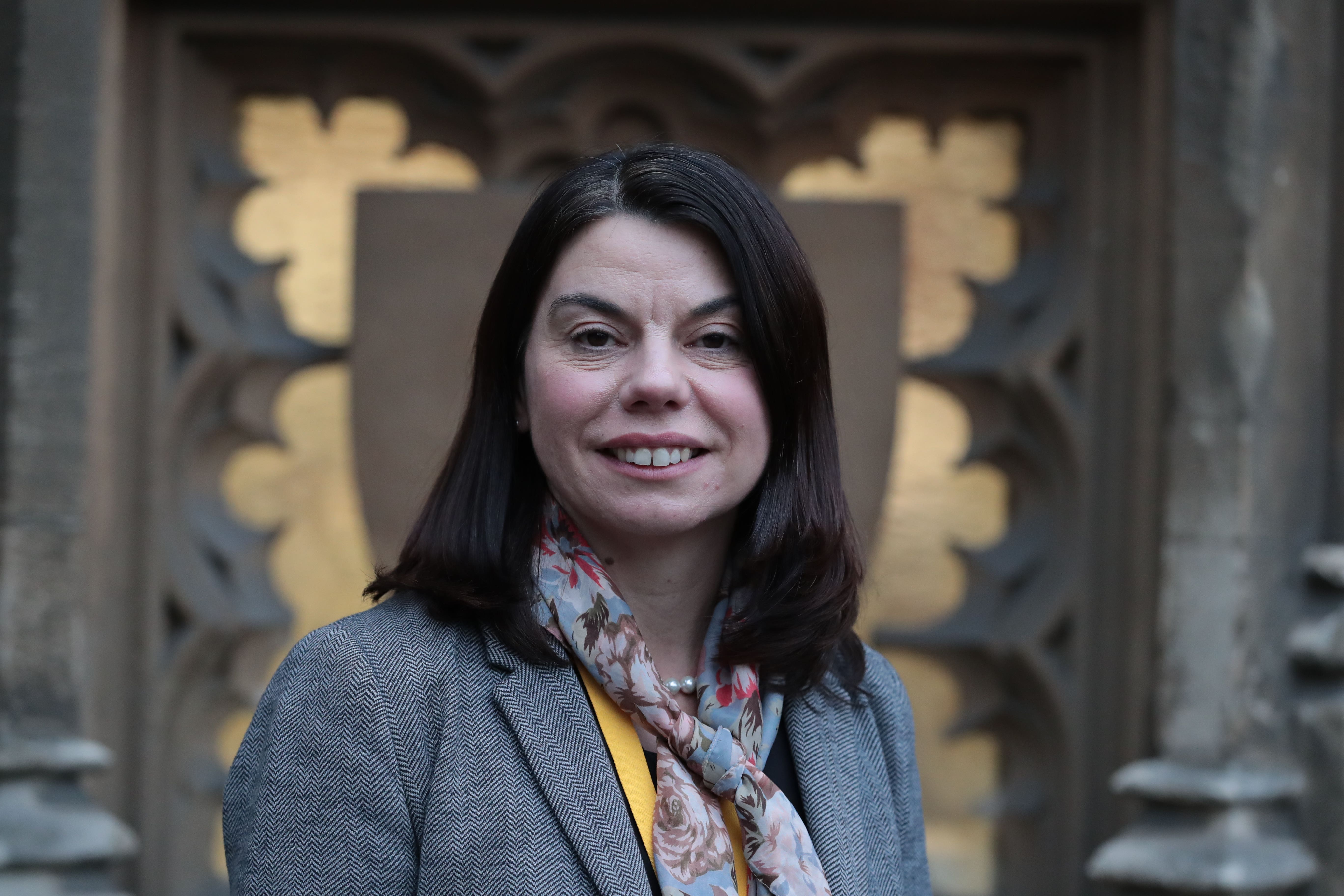Lib Dems call for Biden-style tax on share buybacks at spring conference
The measure could raise £2 billion annually for public services and investment in green industries, according to the party.

The Liberal Democrats have called for a new tax on share buybacks by large companies as the party holds its spring conference in York.
Sarah Olney, the Lib Dem Treasury spokeswoman, used her speech on Saturday to set out the plan to follow Joe Biden’s example and impose a 4% levy on the share buybacks by FTSE 100 firms.
The measure could raise around £2 billion annually for public services and investment in green industries, the party said.
Critics say buybacks – when a company purchases its own shares – are used to inflate share prices and come at the expense of spending on investment.
The US president introduced a 1% tax on share buybacks of US-listed companies in 2022 and has now proposed to raise it to 4%.
Party leader Sir Ed Davey said: “Large corporations from fossil fuel giants to banks are making huge profits off the back of families facing soaring energy bills, mortgage payments and food prices. It is only fair that we ask these companies to pay more in tax.
“This new levy would not just raise much-needed money for public services, it would encourage investment, help create jobs and boost growth including in the green industries of the future.”
The £2 billion the policy could raise is close to what the Labour Party said its plan to tax non-doms could have brought in, before Chancellor Jeremy Hunt deprived Sir Keir Starmer’s party of that funding by adopting the measure in his Budget.
In her speech, Ms Olney said: “Some of the biggest and most profitable companies in the world are listed on the London Stock Exchange. And every year, these same companies spend tens of billions of pounds doing nothing more than buying back their own shares.
“Every pound spent inflating share prices is a pound that could have been spent productively. And at a time when the UK is near the bottom of the table for business investment amongst major economies, that’s a problem.
“And it’s an even bigger problem for our fight against climate change. If we’re going to achieve net zero, we need big corporations to channel serious investment in energy efficiency, green technologies and clean energy. But too many put their share price above the good of our planet.”
She pointed to oil giant BP, which she said spent less than £1 billion of its £11 billion profit last year investing in low carbon energy and more than £5 billion buying back its own shares.
“In the last two years, share buyback programmes from the hundred biggest firms on the Stock Exchange reached record highs, exceeding £50 billion a year. Just think what our economy could have achieved if this money was spent on productive investment — think of the progress we could have made on the green transition.
“Let’s put a 4% tax on share buybacks to incentivise proper business investment, spur economic growth and raise funds fairly for our public services to the tune of £2 billion a year. Let’s take bold action to supercharge green investment and break the cycle of Conservative stagnation and recession.”
Ms Olney also attacked Mr Hunt’s Budget, saying that “even after his changes to national insurance, he is raising taxes to their highest level in the post-war era”.
She added: “And it’s not just that he’s putting up taxes during a cost-of-living crisis. It’s that he’s doing it in the most unfair way possible with a stealth tax that keeps income tax thresholds frozen, dragging millions of people on low pay into income tax for the first time.”
Lib Dem foreign affairs spokesperson Layla Moran, who is of British-Palestinian descent, said in her speech that the Israeli government’s assault on Gaza has “gone beyond the pale”.
She called for sanctions on violent Israeli settlers to be extended to “anyone who enables the insidious settler movement, the lawyers, the accountants, the businesses”.
She said: “If they support illegal activity, they shouldn’t be allowed in the UK and if their money is flowing through our economy, we should go after it. No longer can acting with impunity go without consequence.”
Ms Moran also accused the Tories of fanning “flames of antisemitism and Islamophobia” in the UK, saying the Lib Dems reject their “false dichotomy” of standing either with the hostages and against Hamas, or with the Palestinians and against Benjamin Netanyahu’s government.
Elsewhere, the Lib Dems passed a new policy calling for key sporting events such as Premier League matches, Six Nations Rugby, Ryder Cup and the Ashes to be legally shown on free-to-air TV channels.
The party is using the gathering to prepare for a further push into “blue wall” seats — traditional Conservative strongholds — ahead of the general election.
The party won 11 seats at the 2019 general election but have since gained formerly Conservative constituencies across southern England in a series of by-elections.
These have included Chesham and Amersham in Buckinghamshire, Frome in Somerset, Tiverton and Honiton in Devon, and North Shropshire.
But some polls suggest the far-right Reform UK party has overtaken the Lib Dems in popularity across the UK.
Prime Minister Rishi Sunak this week ruled out holding an election on May 2 to coincide with local elections, having previously indicated he will send the country to the polls in the latter half of 2024.
Bookmark popover
Removed from bookmarks